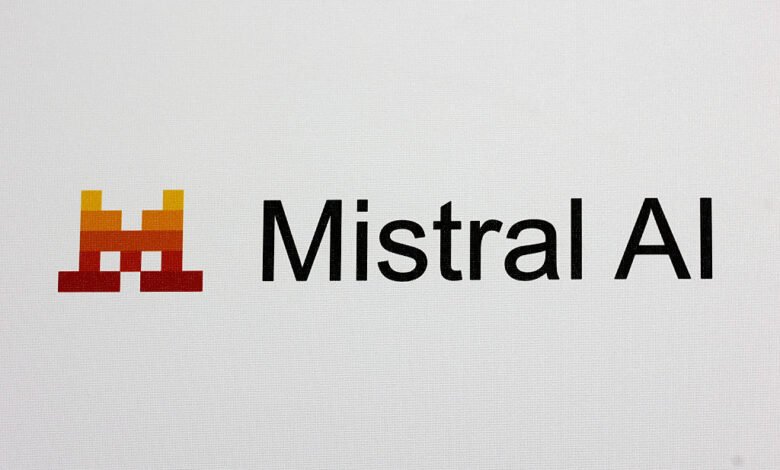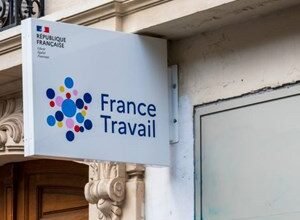Mistral AI: All You Want To Know About OpenAI Rival

▼ Summary
– Mistral AI is a leading French AI startup known for its open-source models and Le Chat assistant, positioning it as a key European competitor to OpenAI.
– The company is raising funds at a $14 billion valuation and has secured significant partnerships, including with Microsoft, NVIDIA, and various European entities.
– Its flagship product, Le Chat, offers features like multilingual reasoning, image editing, and conversation memory, and has reached over 1 million downloads on mobile platforms.
– Mistral AI monetizes through paid tiers for Le Chat, enterprise API licensing, and strategic deals, though its revenue remains in the eight-digit range as of recent reports.
– The founders have backgrounds at major tech firms like Google and Meta, and the company advocates for delayed AI regulation while planning for a future IPO rather than acquisition.
Mistral AI stands as a formidable European challenger in the global artificial intelligence arena, rapidly gaining recognition for its open-source philosophy and ambitious product lineup. Founded in France, the company has positioned itself as a key player capable of rivaling giants like OpenAI, backed by substantial funding rounds and strategic partnerships that underscore its growing influence.
The company’s valuation has seen a dramatic rise, reportedly nearing $14 billion in recent negotiations, up from approximately $6 billion just months earlier. French President Emmanuel Macron publicly endorsed Mistral’s flagship product, Le Chat, encouraging users to choose it over alternatives like ChatGPT. This national backing highlights the startup’s significance not only as a business but as a symbol of European technological sovereignty.
Mistral AI was established in 2023 with the mission to democratize access to advanced AI. While it avoids direct criticism of competitors, its emphasis on openness contrasts with the more guarded approaches seen elsewhere. The company’s chat assistant, Le Chat, quickly gained traction, amassing over a million downloads on mobile platforms shortly after launch and briefly topping France’s iOS App Store charts.
Recent upgrades to Le Chat have introduced capabilities that narrow the gap with established rivals. New features include a “deep research” mode, enhanced multilingual processing, and sophisticated image editing tools. The addition of Projects allows users to organize chats and documents into dedicated workspaces, while the Memories function enables continuity across conversations.
Beyond consumer applications, Mistral AI has expanded its enterprise offerings. The release of Mistral OCR enables converting PDFs into machine-readable text, simplifying data ingestion for AI systems. Meanwhile, Mistral Code provides a vibe coding client aimed at competing with popular developer tools. The company also launched the Mistral Agents API and a refreshed Connectors directory, integrating with platforms like Asana, Google Drive, and Notion.
The founding team brings considerable expertise from leading U.S. tech firms. CEO Arthur Mensch previously worked at Google’s DeepMind, while CTO Timothée Lacroix and Chief Scientist Guillaume Lample are alumni of Meta. Their combined experience lends credibility to Mistral’s technical ambitions, though the involvement of former government official Cédric O as an adviser has attracted some scrutiny.
Mistral adopts a hybrid approach to openness. While it offers certain models under the Apache 2.0 license, its premier models remain proprietary. Revenue streams include paid subscriptions for Le Chat Pro, priced at $14.99 monthly, and enterprise API services with usage-based billing. Strategic partnerships also contribute significantly to income, though total revenue remains in the eight-figure range.
Notable collaborations include a distribution agreement with Microsoft’s Azure platform, accompanied by a €15 million investment. Additional partnerships span media, defense, and public sectors, with agreements signed with Agence France-Presse, the French military, IBM, and shipping conglomerate CMA CGM. The company is also involved in establishing an AI campus near Paris alongside NVIDIA and Bpifrance.
Financing has been robust and sequential. An initial $112 million seed round set a European record, followed by a Series A of €385 million and a subsequent €600 million raise combining equity and debt. Investors include Lightspeed Venture Partners, Andreessen Horowitz, General Catalyst, and NVIDIA, reflecting strong confidence from both financial and strategic backers.
On regulatory matters, CEO Arthur Mensch has advocated for a pause in the implementation of the EU Artificial Intelligence Act, signing an open letter requesting a two-year delay. The European Commission has, however, maintained its original timeline.
Regarding exit possibilities, Mensch has clearly stated that Mistral is not for sale and that an IPO is the intended path. Persistent acquisition rumors, including interest from Apple, have been downplayed, with the focus instead on scaling revenue to justify its lofty valuation. For now, Mistral AI continues to build, innovate, and capture attention as one of Europe’s most watched AI enterprises.
(Source: TechCrunch)





